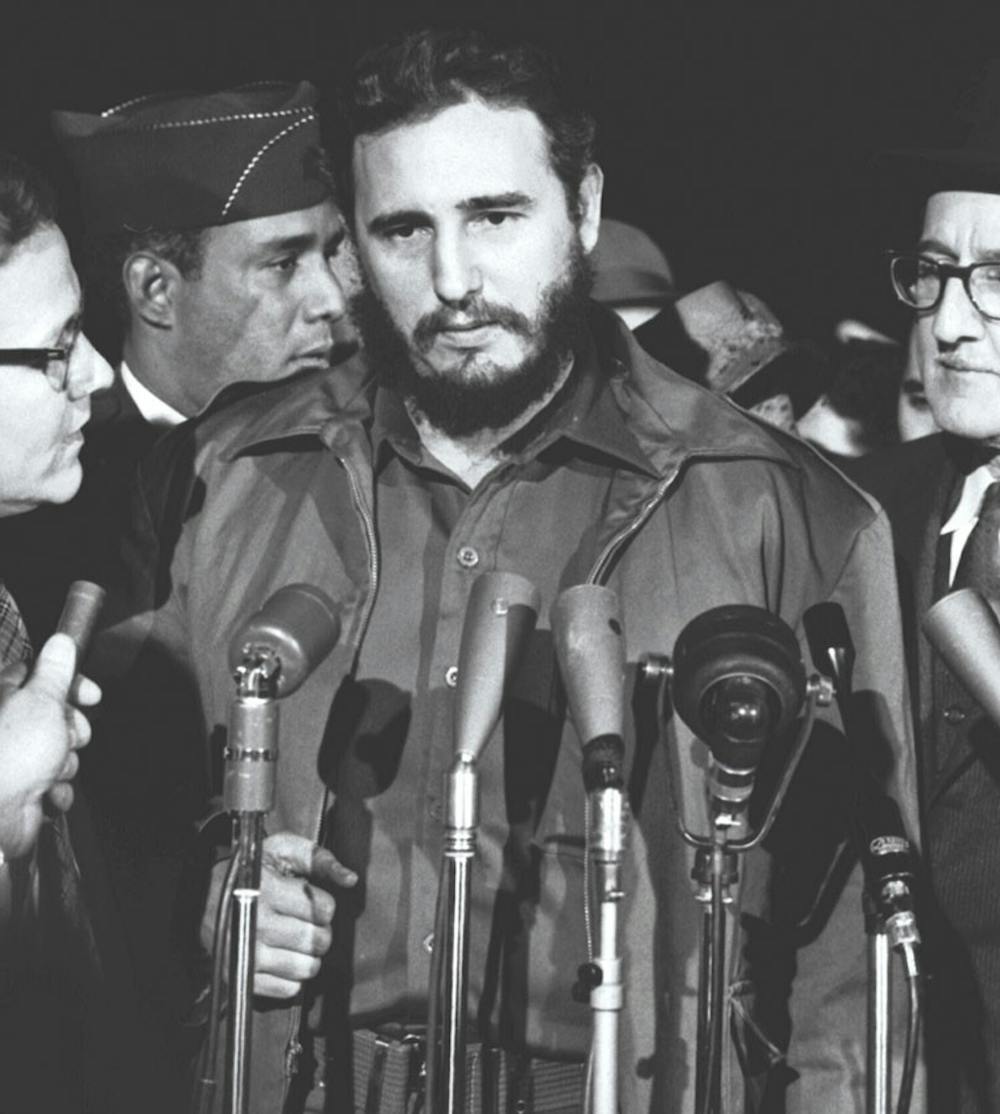By Wilson Alexander | Contributor
Fidel Castro was a man of contradictions.
He led an insurgency to liberate oppressed Cubans and upon winning, kept all the power to himself. He criticized the United States as an evil empire but leaned on the Soviet Union for economic support. He improved the lives of some Cubans with education and healthcare initiatives but destroyed others by stifling any opposition to his rule.
The complex life of the man can also be seen in responses to his death. American citizens and politicians welcomed it with cheers and celebration, while many Latin American leaders expressed condolences and sadness.
From 1956-59, Fidel Castro, along with his brother Raul and fellow revolutionary Ernesto "Che" Guevara, led a guerilla campaign in Cuba to overthrow dictator Fulgencio Batista. Though they were severely outnumbered, they defeated the Batista regime and claimed power over the largest island in the Caribbean.
Shortly after declaring victory, Castro nationalized much of the private property on the island. He also spearheaded reforms in education and healthcare, giving Cuba the highest literacy rate in Latin America, according to United Nations data, and an infant mortality rate and life expectancy that rivals those of the United States, according to Dr. David Blumenthal.
"The Encyclopedia Britannica" reports that Castro's nationalization of private property, criticism of the United States and growing affinity for the Soviet Union quickly drew the ire of officials in Washington, D.C., who began working to overthrow him. The Guardian cites 634 assassination attempts ranging from toxic cigars to poisoned milkshakes.
The most serious attempt to depose Castro came in 1961 when a group of Cuban exiles supported by the United States invaded the island at the Bay of Pigs. They were quickly defeated,pushing Castro further away from the U.S. and closer to the USSR.
In contrast to some of his positive reforms, Castro's regime had many negative aspects. "Britannica" comments that he promised to return Cuba to a democracy during the revolution, but once he took power, he began to silence any dissenting voices, assuming supremacy over all facets of Cuban life by restriction of all forms of mass media and state control of the economy.
Cuba Archive, a project based in Florida that keeps record of the number political deaths in Cuba since the early 1950s has tallied over 7,000 deaths from firing squads, extra-judicial killings and other means after Fidel took power. However, this number could be much higher. The Wall Street Journal notes that Cuba Archive insists on verifying each case from two sources and the project's president President María Werlau pointed out that they have little to no access to statistics from inside Cuba, or regarding the people who died trying to flee the island by sailing to Florida.
Werlau insists that the actual number of deaths could be over 100,000. These estimates would make Castro one of, if not the deadliest leader in Latin American history, far eclipsing the number of people who died under brutal Chilean dictator Augusto Pinochet as well as the "Dirty War" of Argentina.
With the death of its revolutionary icon, questions about the future of the country take on a new urgency. Fidel handed power over to his brother Raul in 2006, who, according to USA Today, is guiding Cuba through a period of transition from Fidel to the future leadership of Cuba. Raul has liberalized some aspects of the country, going so far as to legalize cell phones for the majority of the population in 2008, according to CNET. His most significant accomplishment has been his partnership with Barack Obama over the last couple of years to reestablish diplomatic relations between the United States and Cuba.
Raul is 85 and said he will not rule past 2018, causing speculation that his current vice president, Miguel Diaz-Canel, will serve as his successor, but no one knows whether he will keep opening up the country or maintain the tight grip the Communist party has always held, and the direction future leaders will take the country is equally mysterious.
Despite the uncertainty about the regime he helped create and the debate over his legacy, Fidel Castro is unquestionably one of the most significant figures of the 20th century. He held on to power and the defied the United States longer than anyone thought possible. To some he was a tyrant to others, a savior; but regardless of perspective, the question that will reverberate throughout history is whether Fidel's revolution and the reforms it brought, was worth the massive sacrifice of human life and freedom that accompanied it.





